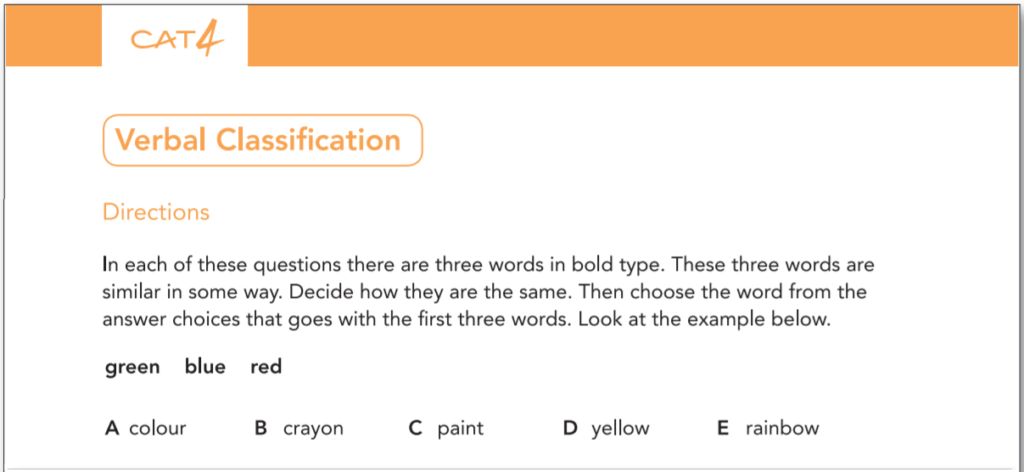What are CAT Tests?

CAT Tests or Cognitive Ability Tests are assessments used by many schools and even during job interviews to assess an individuals overall intelligence and future potential. They provide a good indication of future performance and many secondary schools, particularly private, grammar and international schools, use CAT Tests to assess a child’s ability before they start Year 7. These tests are also used by some schools in year 7 and year 8 to help determine which academic set a child should be placed in. The CAT test isn’t used to assess academic and topic knowledge but rather a child’s potential if provided with an appropriate learning environment.
Assessing a child’s ability in any area – or the groups abilities in the different areas – helps the teacher to focus on different learning styles and create material and assessments that provide maximum benefit.
Types of CAT Tests
CAT4 / CogAT
There are a variety of CAT tests which are focused on different age groups and created for different purposes. The CAT4 test, or cognitive abilities test, is focused on:
– Verbal Reasoning – Thinking and problem solving with words
– Non-Verbal Reasoning – Thinking and problem solving with shapes and space
– Quantitative Reasoning – Thinking and problem solving with numbers
– Spatial Reasoning – Visualising, picturing and moving shapes around
There are various levels of the CAT4 test ranging from primary school all the way to college / year 12. CogAT is a very similar test and generally used in schools within the United States.
UCAT Test
The UCAT is a University Clinical Abilities Test which focuses on areas which are more in line with the requirements of a health care professional and consists of:
- 1: Verbal Reasoning.
- 2: Decision Making.
- 3: Quantitative Reasoning.
- 4: Abstract Reasoning.
- 5: Situational Judgement.
Again the first four sections of the UCAT are clearly measuring cognitive abilities which are related to clinical practice – for instance verbal reasoning skills are required to read reports and / or research papers, decision making is needed to determine a care plan for a patient based on the information available, quantitative reasoning is essential when determining dosages, abstract reasoning is needed to be able to see patterns in x-rays, MRIs, and ultrasounds. Section 5 is the one area which is context specific and bringing together all of the other cognitive skills in actual scenarios.
CAT Test
The Common Admission Test is another form of a cognitive ability assessment which is used by various universities to determine if you have the ability to attend higher education, particularly master level courses. It has in the past consisted of verbal and reading comprehension (VARC), data interpretation and logical reasoning (DILR) and quantitative aptitude. There is a lot of competition to get into university courses so these tests are one part of the admissions process set by the university to help select students who have the potential to do well.
Find out more about the UCAT by clicking here.
What is a good CAT test score?
A good CAT score is normally one which puts you in the 80th or 90th percentile of the cohort who takes the test. Ultimately if you achieve entry into the school of your choice your score was good enough !


